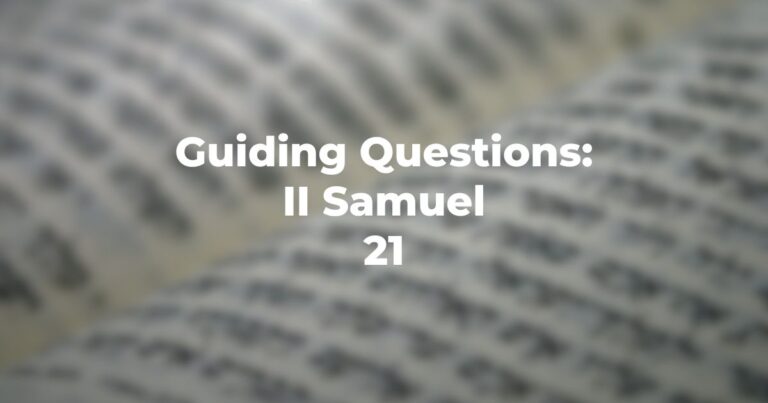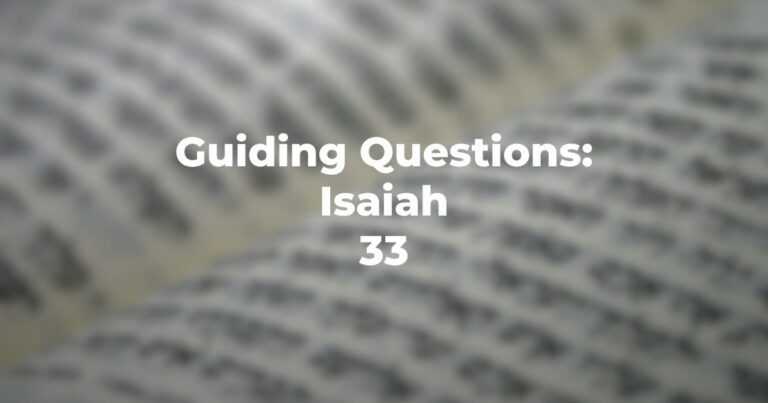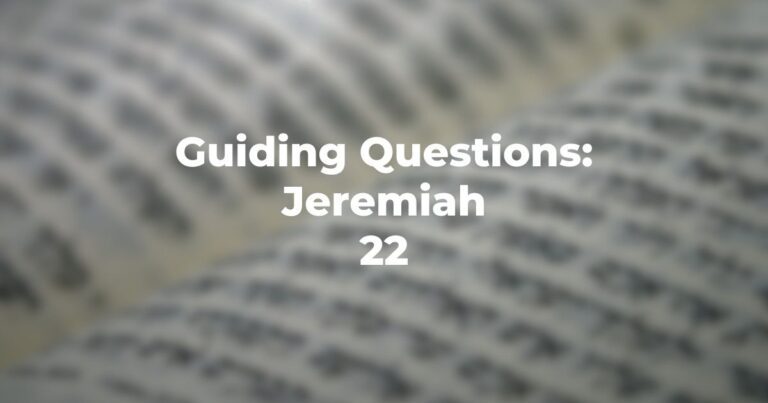- Will social relations in the Brit land/community be utopian (that is, no problems)?
- Is “family vengeance” ever acceptable before establishing guilt?
- What is “goel hadam”? How is this “geulah”? Whose “dam”? (Numbers 35:12)
- What is a “miklat”?
- Speculatively, why is a “miklat” not a section of every town or city?
- What is considered “accidental killing”?
- Is any punishment set down here for accidental killing?
- What determines that a killing is a murder?
- Can a murderer ever escape execution?
- How is murder described in its impact on both the land and the social group?
- Does this section tell anyone—the killer, the community, the family of the killed—how to feel?
- What is the only obligation placed upon the accidental killer?
- And, speculatively, why?
- Can circumstantial evidence convict a killer of murder?
- Can single witness evidence convict a killer of murder?
- What is “kopher”?
- Are there any circumstances when “kopher” will be accepted in lieu of the execution of a murderer?
- Can a murderer plead on the basis of (a) his psychological state, (b) he was told to do it, (c) his upbringing was bad, (d) he is impoverished, (e) the man/woman killed “deserved to die”?
- Or, any other plea save that it was an accident?
- What does a murderer do to the land?
- What becomes of the land if the murderer is not executed?
- Why is this section (virtually) the last section before the “closing oration” by Mosheh?
- Does this chapter teach that in any society, including the Brit society, inter-personal affairs are so complex that there must be conflict, sometimes serious?
- Does the chapter teach that Brit legislation will not change a human’s nature, but it is intended to regulate the human’s conduct in an intelligent fashion?
- Over and above just regulations, provision must be made for certain contingencies beyond the law; how?
- Does this chapter presuppose a social system in which family/tribe is central and wherein the family/clan/tribe will expect (and itself fulfill the expectation) avoiding wrong to one of its members?
- Would this presuppose a mode of carrying out “justice” in the (yet) absence of a full civil authority structure typical of a much later social organization?
- Does TorahRefers to the first five books of the Hebrew Bible, the Tanakh, also called the Five Books of Moses, Pentateuch or the Hebrew equivalent, Humash. This is also called the Written Torah. The term may also refer to teachings that expound on Jewish tradition. Read more seek to control the deep-seated emotion on the part of the family members of the killed or to regulate the action in a number of ways?
- Is killing per se a criminal act; or is its nature determined by ascertainable intent its criminality as a function of deliberateness? Is accidental killing regarded as “murder?”
- Is the accidental killer to be protected from the response of the dead individual’s family?
- Is the purpose of this legislation to avoid “lynch” activity by positing that even if family “retribution” is valid, it is only following a proper procedure, and that guilt and/or innocence are not functions of anything but due process?
- Does this protective legislation include non-citizens?
- Does the execution of the murderer validate the earlier aphorism “nefesh tahat nefesh”—a life for a life?
- Is it clear that the protection of the full society is afforded the killer who is not a murderer (Numbers 35:25)?
- And is it equally clear that there is no escape for the murderer—neither fleeing, nor blood money (Numbers 35:33)?
- What is the relationship between pity and justice? Put otherwise, does pity for the murderer overcome pity for the murdered, or does justice overcome pity?
Author
-

Exploring Judaism is the digital home for Conservative/Masorti Judaism, embracing the beauty and complexity of Judaism, and our personal search for meaning, learning, and connecting. Our goal is to create content based on three core framing: Meaning-Making (Why?), Practical Living (How?), and Explainers (What?).
View all posts




